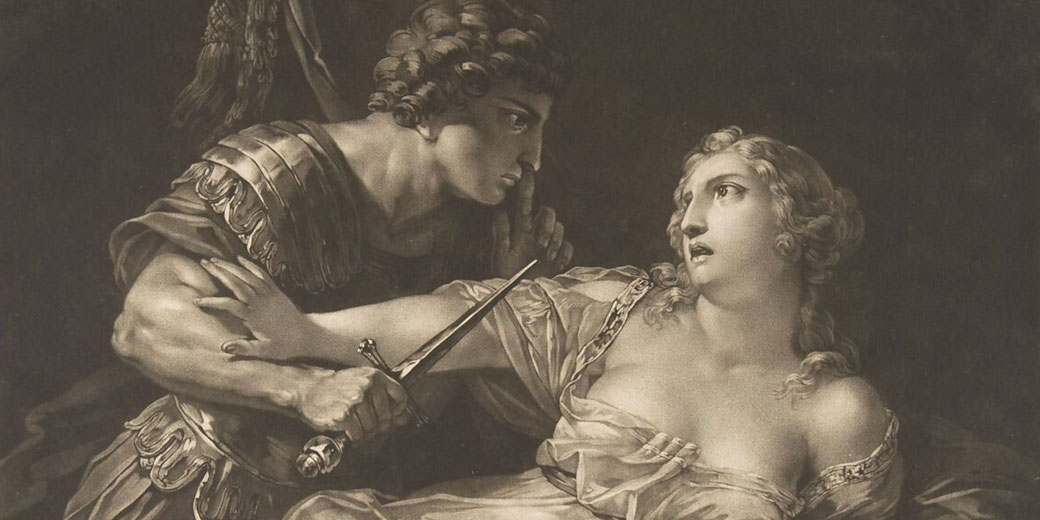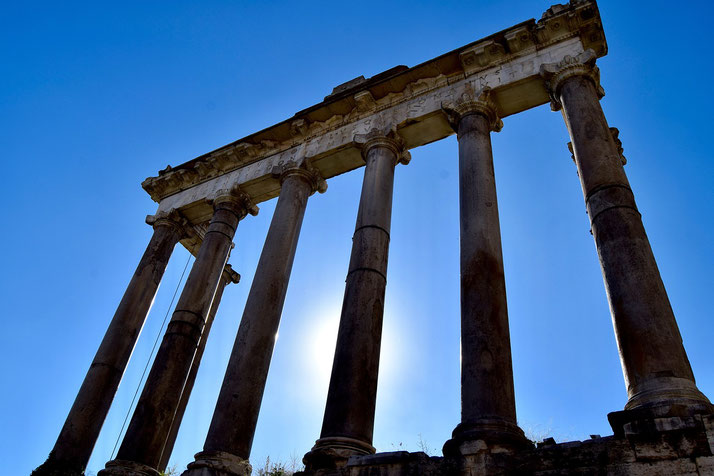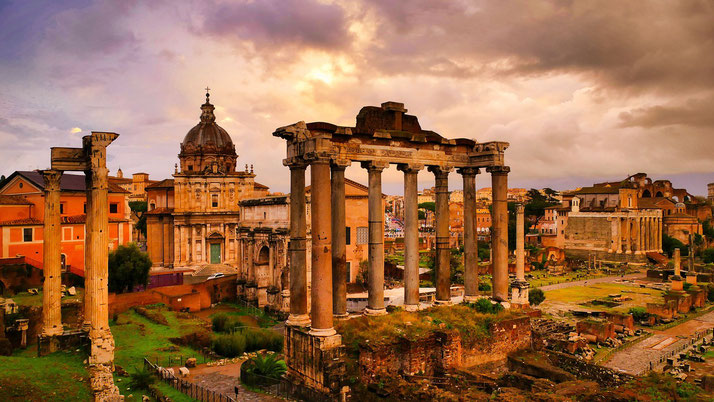Tarquinius Superbus: the tyrannical last king of Rome

Imagine getting fired so badly that your entire job description is abolished for the rest of history. That’s pretty much what happened to one particularly arrogant Roman monarch.
Not only was he deeply unpopular, he was so insufferable and so autocratic, that the Romans collectively said, “Never again,” and invented a whole new system of government to replace him.
Say hello to the monarchy-ending disaster that was Lucius Tarquinius Superbus.
Murderous rise to power
Lucius Tarquinius Superbus, who was known as Tarquin the Proud, was the famous seventh and final king of Rome (usually dated 535–509 BCE).
He came from an Etruscan family (the Tarquinii of Tarquinii) and had Greek ancestry through his grandfather, Demaratus of Corinth.
Ancient historians Livy and Dionysius of Halicarnassus report that Tarquin took the throne by force: he removed his predecessor, Servius Tullius, with help from his ambitious wife, Tullia.
Dionysius says Tarquin had Servius Tullius killed and then quickly removed other nobles who might oppose him.
Tyrannical reign
Tarquin’s domestic policies were strict and controlling. Livy notes that he “took the kingdom without the authorisation of either Fathers or People” and kept armed guards around himself at all times.
He ignored normal Roman customs: for example, he made legal decisions on his own instead of consulting the Senate, and he even refused to allow the proper burial of Servius Tullius.
Dionysius specifically highlights Tarquin’s cruelty: after killing Servius, Tarquin secretly had Marcus Junius (father of the future Brutus) and many other important men killed simply because he wanted their wealth.
Tarquin ruled through fear by imprisoning, exiling, or killing anyone he suspected of disloyalty.
Even so, Tarquin did order some important public building projects. The most famous of these was when he used loot from his wars to finish the large Temple of Jupiter Optimus Maximus on the Capitoline Hill.
When completed, it was dedicated to Jupiter, Juno and Minerva, and became the main religious building in Rome.
Even as king, though, Tarquin’s rule was remembered mostly for his violence and disregard for the Senate, not for any positive reforms.

Wars and Foreign Affairs
On the battlefield, Tarquin pushed for a forceful expansion of Roman power. He fought the neighboring Volsci and Aequi (mountain tribes south of Rome).
He also laid siege to Ardea, a rich city in Latium, on the grounds that it was sheltering Roman exile, but he in fact wanted its treasure.
Tarquin’s son Sextus was also assigned as governor over the Latin town of Collatia.
Tarquin’s most famous conquest was the city of Gabii. According to Livy, Gabii resisted Rome’s attacks, so Tarquin sent his son Sextus to pretend he had changed sides as a way of betraying his own father.
Sextus gained the Gabians’ trust, was made one of their leaders, then secretly killed their ruling men and brought the city under Roman control.
In diplomacy, Tarquin strengthened ties with the Latin town of Tusculum by marrying his daughter to its ruler, Octavius Mamilius.
Despite these successes, his military campaigns were overshadowed by his harsh rule at home.
The Lucretia Affair and the Fall of the Monarchy
The final crisis of Tarquin’s reign began with a personal crime that shocked Roman sense of honour.
Dionysius describes how Sextus Tarquinius visited Collatia and became obsessed with Lucretia, whose husband was Collatinus.
One night, Sextus forced his way into Lucretia’s chamber and threatened to kill her and a slave unless she gave in to his desires.
When she refused, he offered her a terrible choice: “death with dishonour or life with happiness”.
Under pressure, Lucretia gave in, but the attack haunted. Early the next morning she sent for her husband and father, told them what happened, and then took her own life by plunging a dagger into her heart.
As Lucretia died, the Roman nobles and soldiers gathered in her father’s house felt horror.
Dionysius reports that they cried out, “We will rather die a thousand deaths in defence of our liberty!”
The young noble Lucius Junius Brutus led Collatinus and other relatives in revolt.
The conspirators took control of the city, and killed those who had helped Sextus. Following this, they planned to drive Tarquin out of Rome.
When King Tarquin returned quickly from his siege of Ardea to stop the revolt, Brutus outsmarted him.
In Livy’s account Brutus took a different route and reached Rome almost at the same time as the king.
At that moment Tarquin found the city gates shut and the Romans all agreed to exile him.
King Tarquinius Superbus had to flee from the city.
Consequences: The Birth of the Republic
After the Tarquins were expelled, Rome ended the monarchy forever. Dionysius records that Brutus and Lucius Tarquinius Collatinus were chosen as Rome’s first consuls.
Once in office, these consuls shared the power that the king once held. Next, they gathered the people and passed laws to protect the new republic.
They declared that Tarquinius and his sons were never to be allowed back into Rome.
As Dionysius writes, they “swore that they would never again make anyone king”.
This key moment in 509 BCE was the start of the Roman Republic. For centuries Romans remembered the fall of the Tarquin monarchy as the end of tyranny and the rebirth of their city as a free republic.
Tarquin attempts to seize back Rome
After his expulsion from Rome in 509 BC, Tarquin the Proud sought the support of foreign powers to regain his throne.
Initially, he turned to the Etruscan city of Veii, a rival of Rome at the time. He persuaded the Veientes to support his cause, leading to a conflict known as the Battle of Silva Arsia.
However, the Roman forces, led by the newly appointed consul Lucius Junius Brutus, were able to repel the invaders and maintain the new Roman Republic, although Brutus himself died in the battle.
Still determined to regain his throne, Tarquin sought help from Lars Porsena, the king of the Etruscan city of Clusium.
Porsena led an invasion against Rome, which resulted in a series of battles and skirmishes.
Although Porsena managed to capture the Janiculum hill, he was unable to take the city.
In the end, Porsena agreed to a peace treaty with Rome, but rather than reinstating Tarquin as king, he only demanded the return of the land that had been taken from Veii.
Following the finl defeat of his allies at the Battle of Lake Regillus, Tarquin fled to the court of Aristodemus, the tyrant of Cumae (near modern Naples, Italy).
There, he died in exile around the year 495 BC.

What do you need help with?
Download ready-to-use digital learning resources
Copyright © History Skills 2014-2025.
Contact via email
With the exception of links to external sites, some historical sources and extracts from specific publications, all content on this website is copyrighted by History Skills. This content may not be copied, republished or redistributed without written permission from the website creator. Please use the Contact page to obtain relevant permission.





